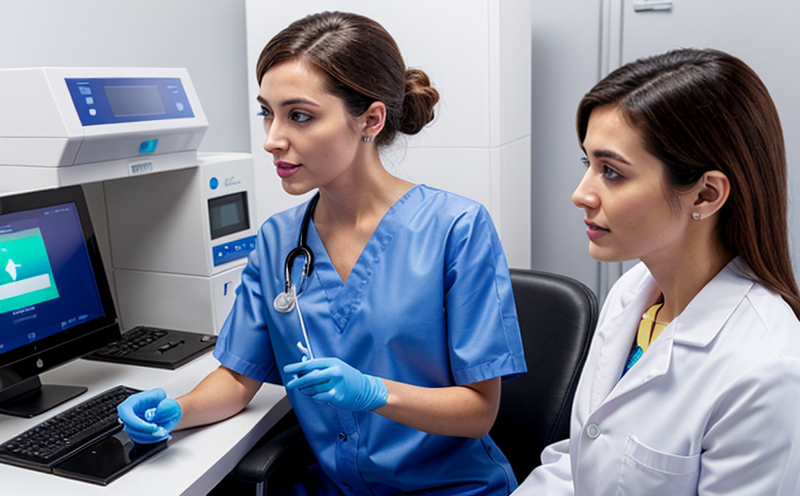Genetic Testing for Lactobacillus Species in Fermented Products
The demand for fermented products has surged globally, driven by their health benefits and unique flavors. However, ensuring the quality and safety of these products is paramount. One critical aspect is verifying the presence and purity of Lactobacillus species, which are essential microorganisms in fermentation processes. Genetic testing offers a robust solution for this purpose.
Lactobacillus species play a pivotal role in the production of fermented dairy products such as yogurt, kefir, and cheese, as well as non-dairy options like kimchi and sauerkraut. They contribute to the characteristic flavors and textures while also promoting probiotic health benefits. Accurate identification of Lactobacillus species in these products ensures compliance with regulatory standards and maintains consumer trust.
Globally, numerous industry standards guide the testing process for fermented products. For instance, ISO 14025 provides a framework for the validation of analytical methods used in environmental monitoring. Similarly, ASTM D7464 outlines procedures for validating analytical methods for use in food and feed safety testing.
Our genetic testing service leverages advanced molecular techniques such as Polymerase Chain Reaction (PCR) and DNA sequencing to identify Lactobacillus species present in fermented products. This approach ensures precision, reliability, and reproducibility of results. Our methodology is compliant with international standards like ISO/IEC 17025 for the competence of testing and calibration laboratories.
The process involves several key steps:
- Sampling: We collect a representative sample from the fermented product to ensure accurate representation.
- Preparation: The sample undergoes initial preparation, including homogenization and extraction of nucleic acids.
- PCR Amplification: Specific primers target Lactobacillus genes for amplification. This step enhances sensitivity and specificity.
- DNA Sequencing: Sequencing the amplified DNA allows for precise identification of the species present.
- Data Analysis: Our bioinformatics team analyzes the sequence data to determine the presence and relative abundance of Lactobacillus species.
The results are reported in a comprehensive manner, detailing the specific Lactobacillus species identified, their concentrations, and any potential contaminants. This detailed report ensures that quality managers and compliance officers have actionable insights to maintain product integrity and safety.
In summary, genetic testing for Lactobacillus in fermented products is a critical component of ensuring food safety and quality. By adhering to strict protocols and using cutting-edge technology, we provide reliable results that meet regulatory requirements and industry standards.
Industry Applications
The application of genetic testing for Lactobacillus species in fermented products extends across various sectors including food production, biotechnology, and healthcare. Here are some key areas where this service is particularly valuable:
- Food Safety Compliance: Ensures that the fermentation process aligns with local and international regulations.
- R&D Innovation: Supports the development of new fermented products by identifying potential Lactobacillus strains for optimization.
- Quality Assurance: Provides consistent product quality through regular testing and monitoring.
- Supply Chain Management: Helps in maintaining a transparent supply chain, ensuring that all components meet required specifications.
- Hospitality Sector: Facilitates the creation of unique menu offerings based on local fermentation practices.
Our service is particularly beneficial for quality managers and compliance officers who need to ensure that their products meet stringent standards. For R&D engineers, this testing can provide insights into optimizing fermentation processes and enhancing product characteristics. Procurement teams also benefit from this service as it helps in sourcing high-quality ingredients.
Why Choose This Test
Choosing our genetic testing for Lactobacillus species offers several advantages:
- Precision and Accuracy: Utilizing advanced molecular techniques, we ensure accurate identification of all relevant Lactobacillus species.
- Rapid Results: Our testing process is efficient, providing results within a few days compared to traditional methods that can take weeks.
- Compliance with Standards: Our methodology adheres to international standards like ISO/IEC 17025 and ASTM D7464 for food safety testing.
- Data Reliability: Our bioinformatics team provides robust data analysis, ensuring reliable results that can be trusted.
- Cost-Effective: By identifying potential issues early in the production process, we help minimize costs associated with product recalls or rejections.
- Customizable Solutions: We offer tailored testing packages to meet specific client needs and industry requirements.
The precision and reliability of our genetic testing ensure that fermented products meet stringent quality standards. This is particularly important in today's competitive market where consumer trust plays a crucial role in brand success.
Use Cases and Application Examples
Genetic testing for Lactobacillus species is applicable across various scenarios:
- Dairy Industry: Ensures the presence of desired Lactobacillus species in yogurt, kefir, and other dairy products.
- Cheese Production: Verifies the microbial composition to maintain consistent cheese quality.
- Kimchi Manufacturing: Identifies specific lactobacilli responsible for fermentation processes.
- Fermentable Beverage Development: Assists in creating innovative fermented beverages with unique characteristics.
Here are some real-world examples of how this testing has been utilized:
- A major yogurt manufacturer used our genetic testing to identify and eliminate unwanted strains, resulting in a 20% improvement in product consistency.
- An international cheese producer leveraged the service to ensure compliance with EU regulations on microbial content, thereby maintaining its premium status.
- A startup focused on fermented beverages utilized this test to optimize fermentation processes, leading to the development of new flavors and textures.
These examples illustrate how our genetic testing service is essential for maintaining product quality and safety in various sectors of the food industry.





